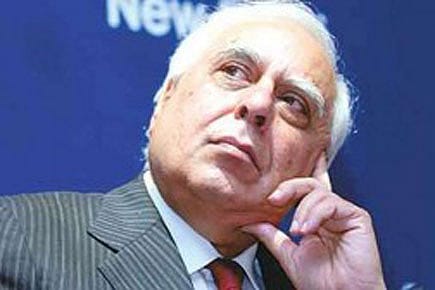Nonsense and Sensibility

A tale of two Sibals and their worldviews
There are enough stories of sons growing up and doing exactly the opposite of what a parent stood for. Why should this one interest anyone more than the others, even if the son is among the most important Cabinet ministers in this UPA government? Maybe because the story is especially relevant in these times of intolerance. Also because the irony of the situation throws up more relevant answers than our politicians would be able to provide. Especially when they are busy playing to the gallery.
An important series of events in the life of Hira Lal Sibal, which his son and lawyer-turned-politician Kapil Sibal refuses to learn from, became the point of discussions on 11 May 2012 in some parts of India and Pakistan. The day marked the 100th birth anniversary of Saadat Hasan Manto, Sr Sibal's friend and arguably among the most important writers of the Subcontinent. Manto's story cannot be told without referring to the obscenity trials he faced. And the story of those trials, in which he was acquitted, cannot be told without talking of Hira Lal Sibal, Manto's old admirer and lawyer. Three years younger than Manto, Sibal was in his early thirties when he first represented his friend in an obscenity trial. Five more were to follow—two in India and the rest in newly formed Pakistan—but in all six, Manto walked out a free man as Sr Sibal stood his ground in the legal battle against the sort of censorship his son now advocates and threatens at the drop of a hat.
The first obscenity trial in Pakistan was prompted by what Manto himself described as his first short story in Pakistan, having moved from Bombay to Lahore in 1948, Thanda Gosht (Cold Flesh). Manto writes in the preface to the short story collection by the same name of the trials and how his friend and fellow writer Ahmed Nasim Qasmi, who had been urging him to write a story for his magazine Naqoosh, liked the story but could not muster the courage to publish it. Qasmi read the story in Manto's presence and said, "Manto Sahib, the story is very good, but a bit too hot for Naqoosh," as he wrote in the preface. Manto promised Qasmi another story the next day and wrote Khol Do (Open) for him. Qasmi published the story and the Punjab government banned the magazine for six months.
AIming High
20 Feb 2026 - Vol 04 | Issue 59
India joins the Artificial Intelligence revolution with gusto
Manto died at 43 and Sr Sibal is now in his late 90s. But due to his failing health, Sibal could not be present at the centenary celebrations at Manto's village in Samrala, Punjab. Instead, his eldest son, VK Sibal was present at the occasion. "It was a struggle between tradition and modernity at the time. Manto's whole idea was not to put a hand on one eye but see things as they are. His intention was not to be obscene but to shock," VK Sibal recalls. He has heard the story of the trials several times from his father and later as a partner in his legal practice. Winning the case, he adds, was a cause célèbre at the time because "justice puts its stamp on the fact that, as a writer, Manto was not trying to be obscene; reality had to be told the way it was." At the programmes to mark the centenary, on 11 May in Chandigarh and two days later at the Samrala function, he heard his father's contemporaries recall how the trial saved Urdu from the clutches of conservatives. "At least 30 per cent of my sensibilities are hereditary," he says.
Ironically, on the same day in Parliament, his youngest sibling, Union HRD Minister Kapil Sibal, was among those spearheading a campaign against a harmless textbook cartoon. Manto's centenary celebrations have ended, but the junior Sibal's tirade is still on. "We believe textbooks are not the place where these [cartoons] should be influencing impressionable minds. That is our position… I found many of the cartoons in textbooks offensive," he told journalists earlier this week. Last year in December, Sibal had tried to gag social media, saying the Government should screen objectionable content on social networking sites. The BJP's Yashwant Sinha and Finance Minister Pranab Mukherjee too endorse Sibal's view that cartoons can damage impressionable young minds. The same sort of arguments were presented by the conservatives who wanted Manto's literature banned. Wonder what Hira Lal Sibal would tell his son, if he cared to listen.
